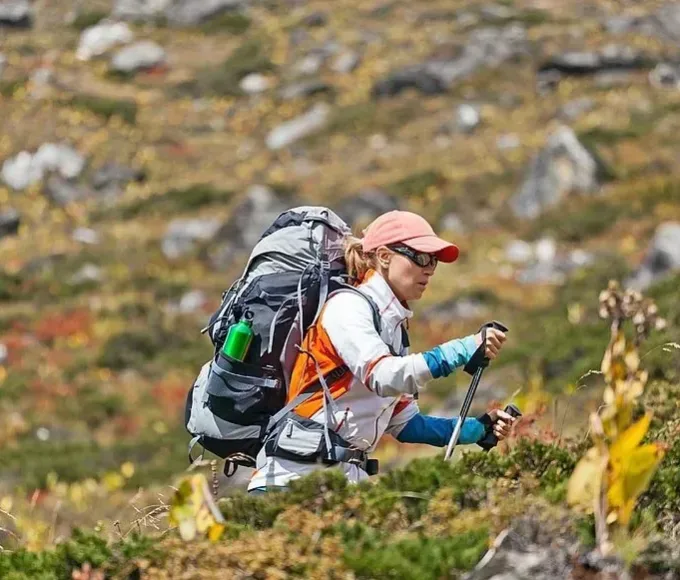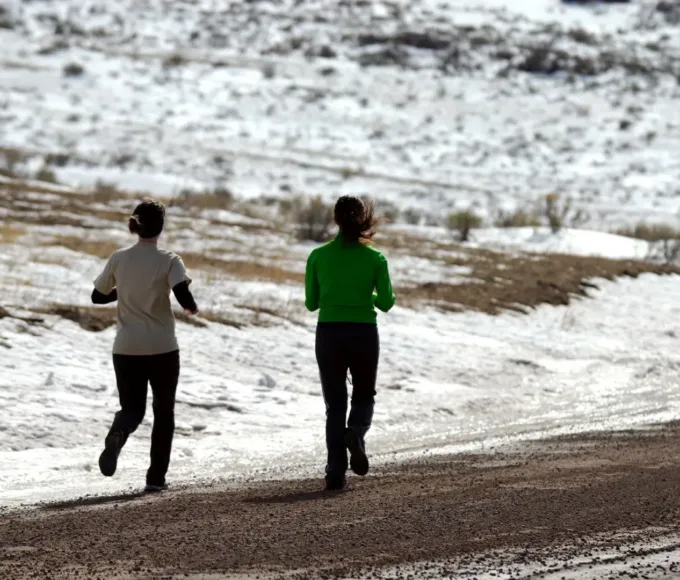
At first, walking and hiking may sound like two words for the same form of exercise. The footwear and scenery may vary, but the lower-body mechanics seem the same.
Surprisingly, though, they’re radically different. Research shows that your joints, heart and muscles perform in distinct ways during a hike compared to what they do during a jaunt around the block.
In fact, hiking on uneven terrain increases the amount of energy your body uses by 28% compared to walking on flat ground. The varying ground slopes you encounter while hiking also make it different from flat-ground walking. Paths that go up, down and sideways require subtle shifts in the way your leg muscles lengthen or shorten while performing work, and those shifts increase the amount of energy you’re expending during your trek.
But the benefits of hiking extend well beyond the extra calorie burn.
Navigating uneven ground—whether you’re hiking or trail-running—recruits different muscles than you would use on flat, man-made surfaces. You’re turning on and strengthening a lot of muscles in your hips and knees and ankles that you don’t normally use.
Pumping up those oft-neglected muscles may improve your balance and stability, which helps protect you from falls. Using those muscles may also knock down your risk for the kinds of overuse injuries—like knee or hip pains, or band issues—that can result from the repetitive nature of level-ground walking or running.
Of course, hiking isn’t without its own risks. If you’re not careful (and sure-footed), missteps can lead to rolled ankles, sprained knees, or even tumbles. Just as a novice runner or weightlifter is asking for trouble by kicking off a new routine with an extended, arduous workout, inexperienced hikers may be more likely to injure themselves if they tackle a long, rocky hike right off the bat
While variable terrain works your body into shape, the sights, sounds and smells of nature may be performing a similar kind of alchemy in your brain. A 2015 study from Stanford University found that time spent in natural environments (as opposed to busy city settings) calmed activity in a part of the brain that research has linked to mental illness. Hanging out with Mother Nature also seems to reduce your mind’s propensity to “ruminate”—a word psychologists use for negative, self-focused patterns of thought that are linked with anxiety and depression.
For both your mind and body, a walk in the woods may be tough to beat
Sources: Time.com
Recent Posts
Related Articles
Preparing for hiking during winter
Winter hiking requires more planning than a regular hiking excursion because you...
June 19, 2023Day Hiking Essentials
Heading out for a day hike is a delightful way to...
June 19, 202310 Practical Ways to Improve Time Management Skills
Do you often feel stressed out with too much work or too...
June 19, 2023Ways to Get Exercise While You Travel for the Holidays
During the next two weeks, most of the people will travel for...
June 19, 2023

























Leave a comment